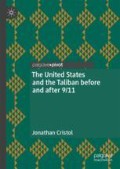Abstract
Recognition was the top foreign policy priority of the new Taliban movement in Afghanistan. This chapter answers two questions: What is diplomatic recognition? and Why was American diplomatic recognition so important to the Taliban? The chapter explains the different theoretical and legal criteria that states use to recognize new regimes or new states. It investigates the tangible and intangible benefits that come from diplomatic recognition. Recognition legitimates the authority of the government for the domestic audience. Domestic legitimacy was especially important to the Taliban, who were engaged in a civil war for the majority of their tenure. It argues that the United States adheres to a constitutive theory of diplomatic recognition and recognizes new governments for political, rather than legal, reasons. It did not recognize the Taliban government for domestic political reasons and a misperception of the geostrategic importance of Afghanistan after the Cold War.
Access this chapter
Tax calculation will be finalised at checkout
Purchases are for personal use only
References
Anonymous. Redacted. 2001. [Redacted]/Veteran Afghanistan Traveler’s Analysis of Al Qaeda and Taliban Exploitable Weaknesses [from Defense Intelligence Agency to [redacted]]. 3 October 2001. Defense Intelligence Agency, document accessed at the National Security Archive, Washington, DC.
Blanchfield, Luisa, and Marjorie Ann Browne. 2014. Membership in the United Nations and Its Specialized Agencies. R43614, Congressional Research Service, 19 June 2014.
Briggs, Herbert W. 1949. Recognition of States: Some Reflections on Doctrine and Practice. The American Journal of International Law 43 (1): 113–121.
Coggins, Bridget. 2006. Secession, Recognition and the International Politics of Statehood. PhD dissertation, Columbus, OH, The Ohio State University.
Crawford, James. 2006. The Creation of States in International Law, 2nd ed. New York: Oxford University Press.
Dodd, Christopher. 1997. Senate Concurrent Resolution 6. 7 February 1997, 105th Congress, 1st Session. Government Publications Office.
Fabry, Mikulas. 2010. Recognizing States: International Society & the Establishment of New States Since 1776. New York: Oxford University Press.
Fenwick, C.G. 1944. The Recognition of New Governments Instituted by Force. The American Journal of International Law 38 (3): 448–452.
Gannon, Kathy. 2005. I Is for Infidel. New York: Public Affairs.
Grant, Thomas D. 1998. Defining Statehood: The Montevideo Convention and Its Discontents. Columbia Journal of Transnational Law 37: 403–457.
Geldenhuys, Deon. 2009. Contested States in World Politics. New York: Palgrave Macmillan.
Maley, William. 2000. The Foreign Policy of the Taliban. Report, Council on Foreign Relations. 15 February 2000. Web.
Mastanduno, Michael, et al. 1989. Toward a Realist Theory of State Action. International Studies Quarterly 33 (4): 457–474.
Peterson, M.J. 1982. Political Use of Recognition: The Influence of the International System. World Politics 34 (3): 324–352.
Peterson, M.J. 1997. Recognition of Governments: Legal Doctrine and State Practice, 1815–1995. Basingstoke, UK: Macmillan.
Rubin, Alissa J. 2011. Assassination Deals Blow to Peace Process in Afghanistan. New York Times, 20 September 2011. Web.
Weeks, Gregory. 2001. Almost Jeffersonian: US Recognition Policy Toward Latin America. Presidential Studies Quarterly 31 (3): 490–504.
Author information
Authors and Affiliations
Rights and permissions
Copyright information
© 2019 The Author(s)
About this chapter
Cite this chapter
Cristol, J. (2019). Introduction: Diplomatic Recognition and the Taliban Movement. In: The United States and the Taliban before and after 9/11. Palgrave Pivot, Cham. https://doi.org/10.1007/978-3-319-97172-8_1
Download citation
DOI: https://doi.org/10.1007/978-3-319-97172-8_1
Published:
Publisher Name: Palgrave Pivot, Cham
Print ISBN: 978-3-319-97171-1
Online ISBN: 978-3-319-97172-8
eBook Packages: Political Science and International StudiesPolitical Science and International Studies (R0)

